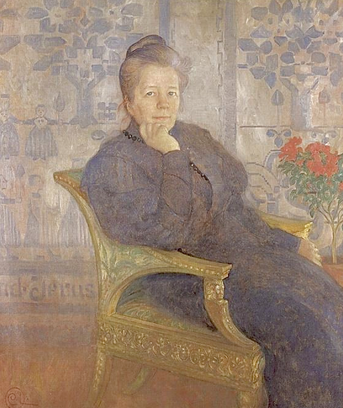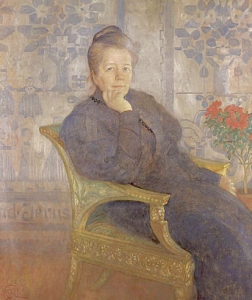
Podcast: Play in new window | Download
Subscribe: RSS
 December 10, 2014 – Segment 1
December 10, 2014 – Segment 1
Marc talks about what happened on this day in history, including the day Selma Lagerlof became the first female writer to win the Nobel Prize in Literature, the day Nelson Mandela signed the South African Constitution into law, and the day comedian Richard Pryor passed away.
Today is,
–Constitution Day, Thailand
–Human Rights Day, International
–International Animal Rights Day, International
On this day,
1510 – Portuguese naval forces under the command of Afonso de Albuquerque seize Goa from the Bijapur Sultanate, resulting in 451 year of Portuguese colonial rule.
1541 – Thomas Culpeper and Francis Dereham are executed for having affairs with Catherine Howard Queen of England and wife of Henry VIII. http://www.
1684 – Isaac Newton’s derivation of Kelper’s Laws from his theory of gravity is read to the Royal society by Edmond Halley.
1817 – Mississippi was admitted to the union as the 20th state.
1864 – Sherman’s March to the Sea – Maj. Gen. William Tecumseh Sherman’s troops reach the outer Confederate defenses of Savannah, Georgia. http://www.
1869 – The Kappa Sigma Fraternity is founded at the University of Virginia.
1872 – Landrow Bell of Washington, D.C. received patent number 133,823 for an improved dough kneader. His machine kneaded dough more quickly and more uniformly. Bell had previously received patent number 114,153 May 23, 1871 for new and useful improvements in smokestacks and chimneys for locomotives or other engines. (thewright.org)
1884 – Adventures of Huckleberry Finn, by Mark Twain is published.
1901 – The first Nobel Prizes are awarded http://www.nobelprize.
1909 – Selma Lagerlof becomes the first female writer to win the Nobel Prize in Literature
1948 – The United Nations General Assembly adopted its Universal Declaration on Human Rights. http://www.un.org/en/
1949 – The Peoples Liberation Army begins its siege of Chengdu, the last Kuomintang-held city in mainland, China, forcing President of the Republic of China Chiang Kai-shek to retreat to Taiwan.
1950 – Ralph Johnson Bunche became the first Black person to receive the Nobel Peace Prize. He received the prize as the result of achieving the 1949 Armistice Agreement to resolve the Arab-Israeli conflict. http://www.pbs.org/
1963 – Zanzibar gains independence rom the United Kingdom as a constitutional monarchy, under Sultan Jamshid bin Abdullah.
1984 – South African Bishop Desmond Tutu received the Nobel Peace Prize.
1989 – Mongolian Revolution – At the country’s first open pro-democracy public demonstration Tsakhiagiin Elbegdorjannounces the establishment of the Mongolian Democratic Union. http://nvdatabase.
1993 – Former Presidents de Klerk and Nelson Mandela are joint recipient of the Nobel Peace Prize.
1993 – The last shift leaves Wearmouth Colliery in Sunderland. The closure of the 156-year-old pit marks the end of the old County Durham coalfield, which had been in operation since the Middle Ages. http://www.sunderlandecho.
http://www.independent.co.uk/
1994 – Yasser Arafat, Shimon Peres and Yitzhak Rabin received the Nobel Peace Prize.
1996 – Mandela sings the South African Constitution into law. http://www.sahistory.org.
1998 – A group of about 15 people protested on the steps of St George’s Cathedral in Cape Town to demand medical treatment for people living with the virus that causes AIDS. The group included people with HIV, a medical student, a 66-year-old grandmother, a former human rights commissioner and a selection of others determined to draw attention to the unnecessary suffering and death caused by the untreated epidemic. Passers-by were surprised. Not many of them knew that you could treat AIDS. They didn’t realize that AIDS medications were freely available in Western countries. By the end of the day the group had collected over 1000 signatures calling on the government to develop a treatment plan for all people living with HIV, and the Treatment Action Campaign (TAC) was born. (sahistory.org)
2002 – Jimmy Carter accepted the Nobel Peace Prize with a call for humanity to rise up against a looming climate crisis.
2007 – NFL star Michael Vick was sentenced to 23 months in prison for bankrolling a dogfighting of his scant accomplishments and a robust defense of the U.S. at war.
2009 – President Barack Obama accepted the Nobel Peace Prize with a humble acknowledgment of his scant accomplishments and a robust defense of the U.S. at War.
2011 – Ellen Johnson Sirleaf was awarded the Nobel Peace Prize “for securing peace in Liberia, promoting economic and social development, and strengthening the position of women.” Johnson Sirleaf was born October 29, 1938 in Monrovia, Liberia. She earned her bachelor’s degree in accounting from the University of Wisconsin-Madison and in 1971 earned her Master of Public Administration degree from Harvard University’s Kennedy School of Government. (thewright.org)
Births
1787 – Thomas Hopkins Gallaudet, American philanthropist and educator, founded the American School for the Deaf. (d.1851) http://en.wikipedia.
1822 – Cesar Franck, Belgian-French Romantic composer (d.1890)
1830 – Emily Dickinson, American poet
1872 – Landrow Bell of Washington, D.C. received patent number 133,823 for an improved dough kneader. His machine kneaded dough more quickly and more uniformly. Bell had previously received patent number 114,153 May 23, 1871 for new and useful improvements in smokestacks and chimneys for locomotives or other engines. (thewright.org)
1903 – Mary Norton, English children’s author (d.1992)
1921 – Clarence Matthew Baker, hall of fame comic book artist, was born in Forsyth County, North Carolina but raised in Homestead, Pennsylvania. Baker attended Cooper Union School of Engineering, Art and Design.
1924 – Michael Norman Manley, two-time Prime Minister of Jamaica, was born in St. Andrew, Jamaica. Manley served with the Royal Canadian Air Force during World War II and graduated from the London School of Economics in 1949. In 1967, he won election to the Jamaican House of Representatives and in 1969 became the leader of the People’s National Party. Manley was elected prime minister in 1972 and served until 1980 when he was defeated for re-election. He was re-elected prime minister in 1989 and served until 1992 when he resigned due to health reasons. During Manley’s tenure, Jamaica established a minimum wage for all workers, universally free secondary education, and equal pay for women
1933 – Henry L. Marsh III, civil rights lawyer and politician, was born in Richmond, Virginia
Deaths
1865 – Leopold I of Belgium, (b.1790)
1896 – Alfred Nobel, Swedish chemist and engineer invented Dynamite and founded the Noble Prize (b.1833)
1909 – Red Cloud, American tribal chief (b.1822) http://www.pbs.org/
2005 – Richard Pryor, American comedian, actor, producer, and screenwriter (b. 1940)
Sources: The People History; This Day in Labor History; Wikipedia List of Historical Anniversaries; This Day in Women’s History; This Day in African History;History.com; History Orb; Yenoba; Selected Black Facts; Phil Konstantin’s North American Indian History; and This Day in Music




